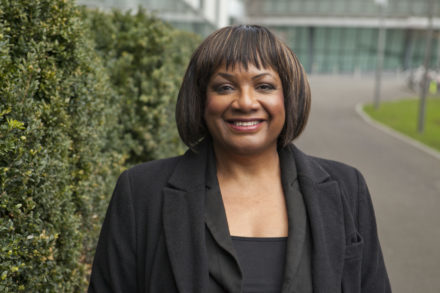

There is a widespread anxiety that the economic outlook will deteriorate. If so, we should expect the Tories to expand their scapegoating tactics.
This goes back at least as early as the early 2010 general election campaign when David Cameron promised to eliminate the deficit in the next parliament and to reduce net migration to the “tens of thousands”. We now know that both his government, and its successor under Theresa May, have failed spectacularly to meet either target.
The effect of these claims was purely political, with little or no movement towards the stated goals. What it allowed the Tories to do was to demonise others – and the Labour Party – for the global economic crisis. The Conservative-led government, with the staunch support of the Lib Dems, did not address the economic slump, declining in tax revenues, falling investment or the housing crisis. Instead, it simply blamed “scroungers”, public sector workers and inevitably it blamed immigrants.
This was not a one-off. Cameron again began to campaign hard on reducing net migration to tens of thousands in 2011, not a major election year. But austerity was biting hard and it was becoming clearer that it was not going to be a quick fix, as most voters naturally hoped. For the first time in almost four years Labour was leading the Tories in the polls. The campaign against migrants, as well as the renewed attacks on “scroungers” were a clear instance of the Tories blaming others for their own policy failings. That these are often the most vulnerable in society did not inhibit the Tory campaign.
No objective assessment would blame the housing crisis on immigrants. Successive governments have not built enough houses. Of those that have been built, migrant labour was of course a key contributor. The same is true of public services. Migrants to this country on average are younger than the native population simply because the elderly are far less likely to migrate. As a result, immigrants tend to use services like the NHS far less. Yet at the same time they make an enormously valuable contribution to the NHS, where 12 per cent of the total workforce are not British, 132,000 doctors, nurses and other workers in all. Because migrants are much more likely to be in employment they are also widely held to be net contributors to government finances.
Yet some sometimes reality intrudes in this relentless campaign. When David Cameron requested an “emergency brake” on immigration the EU asked for evidence that migration was causing a particular strain on employment or public services. Despite calling on the help of Migration Watch, Cameron’s advisers report that no serious evidence could be found.
Although the anti-immigrant campaign is relentless, it does not mean it is unstoppable. Much of the toxic rhetoric around “scroungers” has declined. A major factor here was that the Tories over-reached themselves with the attempted cut to working tax credits. By definition these are paid to the working poor and strong opposition from the Labour party led by Jeremy Corbyn forced their abandonment.
We face a similar change to detoxify the immigration issue. That is a major goal for Labour in 2017 and the years ahead. Immigrants are part of our community. Immigrants are our doctors, our nurses our building workers and our colleagues in manufacturing industries and our school kids’ friends.
When the Tories attack migrants to distract from their own failings the overwhelming majority of the population is worse off twice over. First, it means they are getting away with cuts, rising inequality and falling living standards. They are also getting away with attacking our communities and those we all rely on. Labour will pin the blame where it really belongs. It is the Tories who are making you worse off.
Diane Abbott is shadow home secretary and MP for Hackney North and Stoke Newington.




More from LabourList
‘AI regulation is key to Labour’s climate credibility’
Ben Cooper column: ‘Labour needs to rediscover its own authentic populism’
‘Westminster rethought: a new purpose built site and a museum of democracy’